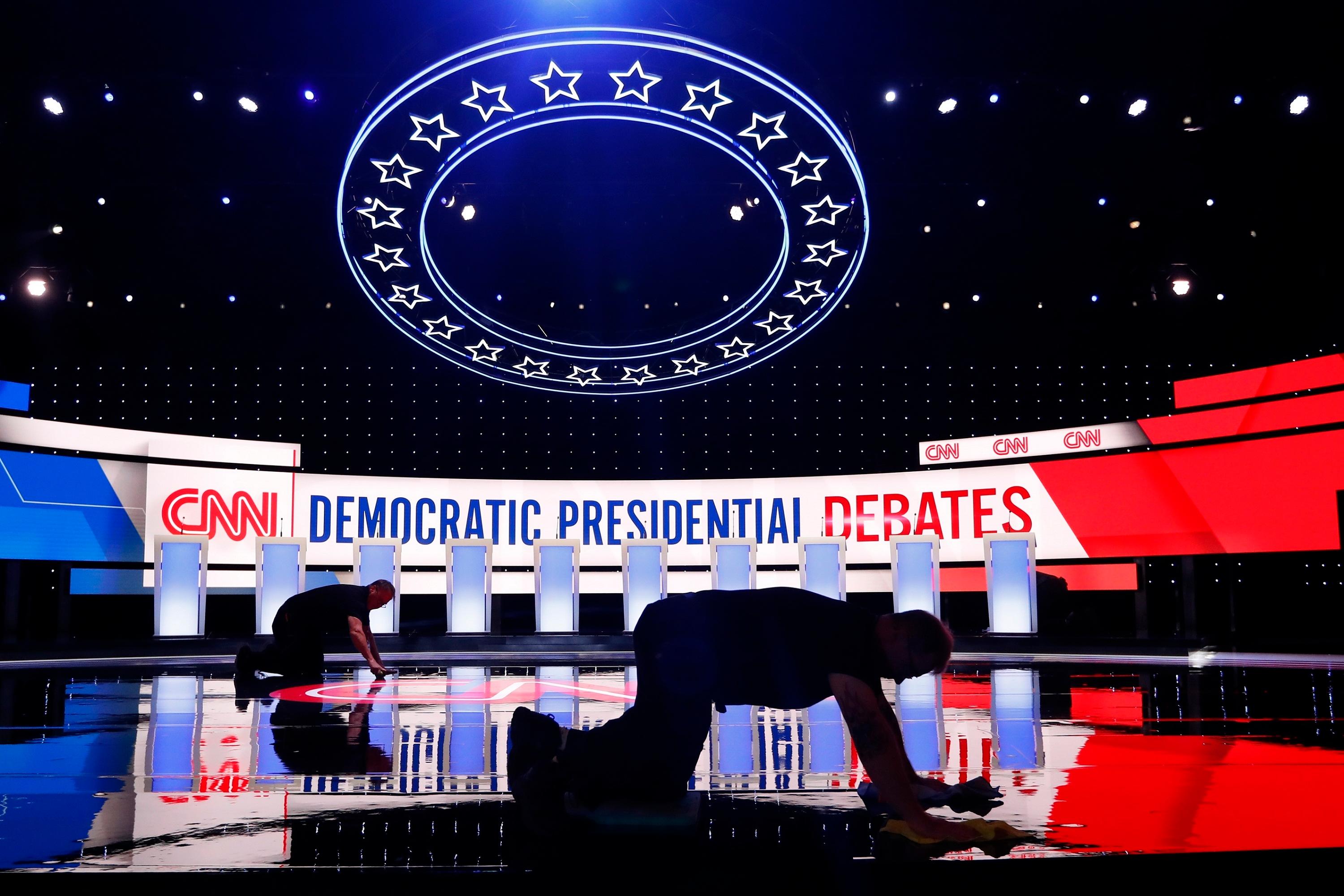
The preeminent faces of the Democratic Party's emboldened progressive wing — and their ideas to bring transformational change in many aspects of Americans' lives — take prominence at Tuesday night's presidential debate as they face off for the first time.
Bernie Sanders, a self-described democratic socialist, will appear alongside progressive firebrand Elizabeth Warren. Both are known for their unapologetic embrace of aggressive plans to overhaul health care, higher education, child care and the economy — ambitious and expensive steps that may be popular among many Democrats but give President Donald Trump and his Republican allies ample opportunity to cast all Democrats as extreme.
The fight for the political left is just one subplot as the first wave of 10 candidates meets in Detroit. A second group of 10 that features early front-runner Joe Biden as well as Kamala Harris convenes Wednesday night. The groupings were chosen by debate host CNN at random.
The first votes in the Democratic primary won't be cast for six more months, yet there is an increasing sense of urgency for many candidates who are actively fighting for survival. More than a dozen could be blocked from the next round of debates altogether — and effectively pushed out of the race — if they fail to reach new polling and fundraising thresholds implemented by the Democratic National Committee.
Former Texas Rep. Beto O'Rourke, who is participating in the first debate, is likely to qualify, even as he tries to stop his sharp slide in the polls. But those especially at risk among Tuesday's lineup include Montana Gov. Steve Bullock and former Colorado Gov. John Hickenlooper, the only governors in the running, and Midwestern natives such as Minnesota Sen. Amy Klobuchar and Ohio Rep. Tim Ryan. Also on stage: former Maryland Rep. John Delaney and author and activist Marianne Williamson.
The better-known contenders such as Warren, Sanders and South Bend, Indiana, Mayor Pete Buttigieg face a less dire challenge: to stand strong but avoid any major gaffes in a marathon presidential season that has only just begun.
While there will be intense debate about the economy, health care and immigration, race also figures to play prominently.
This marks the first debate since Trump used racist language to attack four Democratic congresswomen of color, calling on them to "go back" to their countries even though all four are U.S. citizens. While Trump sought to distance himself from a racist chant from supporters who echoed his words at a subsequent rally, he continued to inflame racial tensions over the weekend by declaring that "no human being would want to live" in a "rat-infested" part of Baltimore, which, like Detroit, is a majority-minority American city.
The debate is expected to begin with opening statements from each contender. There are no candidates of color among Tuesday's competitors, which will feature three women, an openly gay man and a generational divide that spans four decades.
The ideological divide may be the real star of the show, however.
Sanders, a Vermont senator, is the only candidate who freely acknowledges his socialist leanings, but his once-fringe liberal policies have been adopted by the Democratic mainstream since Trump's election. Warren, a Massachusetts senator who supports the current capitalist economic system, has been railing against corporate influence in the American economy for decades and has signed on to many of Sanders' policy priorities.
The more moderate Hickenlooper and Delaney have repeatedly warned that an aggressive lurch to the left on key policies would be bad for the party and the country. So far, however, their voices have been drowned out by their better-known liberal opponents.
Still, few expect Sanders and Warren to attack each other directly Tuesday night, even though they represent the most serious competition in the broader fight for the hearts and minds of the energized liberal base. Warren offered a soft jab earlier in the day by unveiling several new congressional endorsements, including one lawmaker who previously backed Sanders.
The midsummer affair may make for high political drama, but it's unclear how many voters are paying attention in the heart of summer vacation season.
Between 15 million and 18 million people tuned into last month's debates. Few expect this week's numbers to reach the same level — especially the 18 million viewers who tuned into the second night of the first round, which represented the highest-rated Democratic debate in Nielsen ratings history.
Democratic strategist Jamal Simmons said the intramural fight among Democrats is necessary to get a battle-tested nominee who is ready to face Trump on all topics, including race.
Trump's latest comments blasting Democratic Rep. Elijah Cummings and his Baltimore-area district, Simmons said, underscore voters' unease with Trump in the White House.
"People argue over whether we are beating up the ultimate nominee, but if we don't, Trump will," Simmons said. "People are testing each other. How you stand up under pressure is part of what the judgment is of who's the best candidate."









